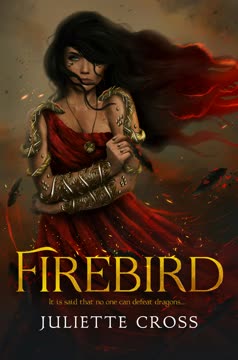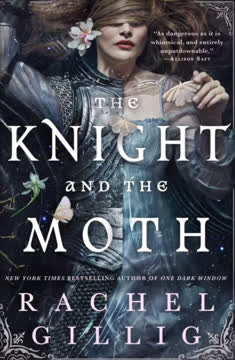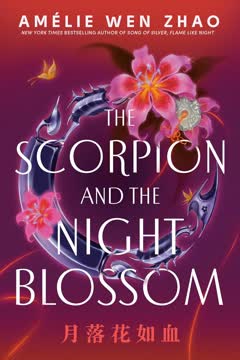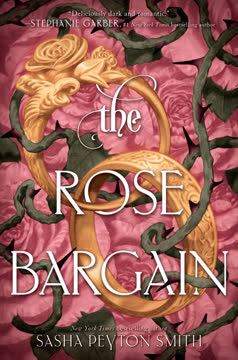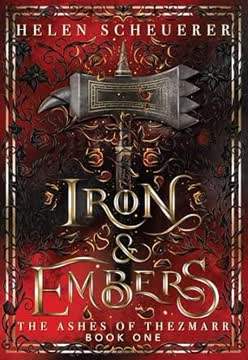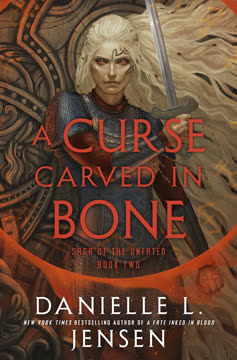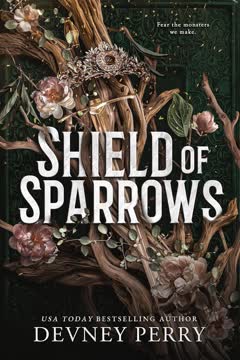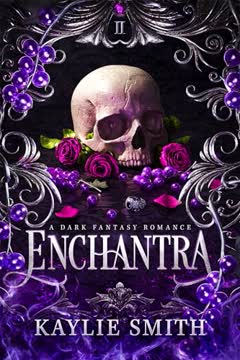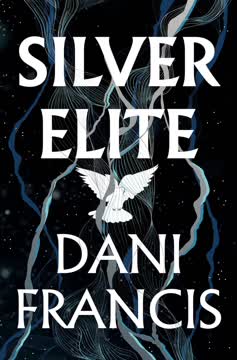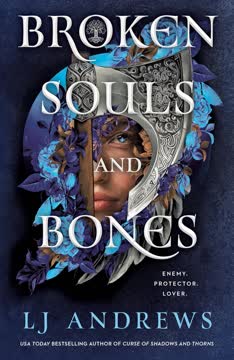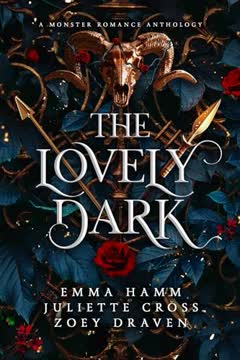Plot Summary
Dacian Dancer's Defiance
Malina Bihari, a fiercely independent and gifted empath from Dacia, travels with her sisters and clan, performing as a dancer in a world inspired by a mythic, dragon-ruled Rome. Her family's caravan is her sanctuary, but the shadow of Roman oppression looms. When a Roman centurion—Julian, a dragon-blooded noble—arrives at a village performance, Malina's defiant dance and empathic magic catch his attention, setting in motion a collision of fate, power, and forbidden attraction. The encounter is charged with danger and allure, as Malina's spirit refuses to cower before the conquerors, even as her world teeters on the edge of violence.
The Dragon's Coin
After her performance, Malina receives a gold coin from Julian, who is both captivated and haunted by her. The coin, minted by his family and blessed by the goddess Fortuna, becomes a talisman for Malina—a symbol of hope and a thread of destiny. Their brief, charged exchange is a moment of connection across the chasm of conqueror and conquered, and the coin's significance will echo through their lives as war and loss draw them together and apart.
Rome's Burning Shadows
Years later, Malina's world is shattered when her family and adopted Celtic clan are destroyed by Roman legions. Julian, now a general known as the Coldhearted Conqueror, leads the assault. Malina's empathic powers cannot save her loved ones, and she is captured, nearly falling victim to a brutal soldier before Julian intervenes—his dragon emerging in a violent, protective rage. He claims Malina as his own, spiriting her away to Rome, where she becomes both his captive and his secret.
The Conqueror's Bargain
In Julian's opulent Roman villa, Malina is forced into the role of body slave, but their relationship is fraught with tension, desire, and mutual fascination. Julian is both her captor and her protector, torn between his loyalty to Rome and his growing love for Malina. Their nightly conversations reveal shared pain and longing, and Malina's magic—her ability to manipulate emotions—becomes both a weapon and a bond. As they navigate the treacherous politics of Rome, their connection deepens, but the threat of exposure and betrayal is ever-present.
Chains and Collars
Malina's new life is defined by the collar she wears, marking her as Julian's property. She befriends other slaves—each with their own scars and secrets—and learns the brutal realities of Roman society. Yet, even in chains, Malina's spirit is unbroken. She uses her gift to protect herself and others, and her presence begins to change Julian, awakening his conscience and fueling his desire to challenge the empire's cruelty.
The Emperor's Feast
Julian is summoned to a decadent imperial feast, where Emperor Igniculus—his uncle—displays his power through humiliation, violence, and sexual dominance. The event is a grotesque spectacle, revealing the rot at the heart of Rome. Julian's disgust grows, and he is drawn further into a secret conspiracy to overthrow the emperor. Malina, meanwhile, witnesses the dangers of being a slave in a world where lives are disposable, and her own safety becomes increasingly precarious.
Forbidden Tethers
As Julian and Malina's relationship becomes more intimate, their emotional and magical bond—described as a "tether"—grows unbreakable. They confide in each other, sharing their pasts and dreams. Julian reveals his involvement in a plot to assassinate the emperor and remake Rome, and Malina pledges her support, even as she fears the cost. Their love is both a source of strength and a vulnerability, as enemies close in and the stakes rise.
The Witch's Gift
Malina's empathic magic, rooted in the myth of Medusa and the goddess Minerva, is both blessing and curse. She learns to wield it with greater skill, using it to influence, protect, and, when necessary, destroy. Her power becomes central to the rebellion's hopes, and she is haunted by her grandmother's prophecy that she and her sisters would "save us all." As the plot against the emperor advances, Malina's role as witch, lover, and symbol of resistance crystallizes.
Blood and Betrayal
Julian and his allies—noble dragons and senators—plan a coordinated coup, but the web of intrigue is dense. Betrayal is everywhere: spies, rival generals, and the emperor's own paranoia threaten to unravel everything. Julian's rival, Ciprian, becomes a dangerous adversary, targeting Malina to hurt Julian and gain favor with the emperor. The lines between friend and foe blur, and the cost of rebellion grows ever higher.
The Rite of Skulls
Ciprian's rise is marked by the gruesome Rite of Skulls, a ceremony celebrating the slaying of an enemy king. Malina is forced to participate, her blood used in the ritual, and Julian is powerless to intervene without exposing their secret. The event is a turning point, as Ciprian's ambitions and cruelty become clear, and the emperor's suspicions of Julian's loyalty deepen. The lovers' position grows more precarious, and the need for decisive action becomes urgent.
The Arena's Fury
Julian and Ciprian are pitted against each other in the Colosseum, their rivalry manipulated by the emperor. The fight is brutal, and Julian is forced to yield Malina to Ciprian as the price of peace. Separated and desperate, Malina must survive Ciprian's sadism, relying on her magic and wits, while Julian is driven to the edge of madness by loss and rage. The rebellion teeters on the brink of collapse as personal and political stakes converge.
The Price of Freedom
Malina endures Ciprian's torment, drugged and powerless, until she manages to call out to Julian through their magical bond. Julian, in a berserk dragon rage, storms Ciprian's house, killing him and burning his estate to the ground. The lovers flee Rome, aided by Julian's allies, but the cost is immense: their plot exposed, their friends in danger, and the hope of a new Rome seemingly lost. Yet, in their flight, they find a new kind of freedom and the promise of a future together.
The Goddess's Bargain
Malina, desperate for protection and victory, makes a sacred bargain with Minerva, offering her most precious possession—the coin Julian gave her—in exchange for the goddess's aid. The act is both a sacrifice and the goddess's bargain and a declaration of faith in a better world. The goddess's presence is felt as the old order begins to crumble, and Malina's role as firebird, witch, and savior is affirmed.
Firebird Ascending
Julian and Malina, now fugitives, find sanctuary in a distant land. Their love, tested by fire and blood, is stronger than ever. They gather their found family—other survivors and outcasts—and begin to dream of a new life. The firebird, once a symbol of destruction and rebellion, becomes a beacon of hope and rebirth. The couple's union is both personal and political, a promise to build a world free from tyranny.
Exile and Hope
In Britannia, Julian and Malina create a home for themselves and their companions, including Stefanos, the dragon-blooded boy, and other former slaves. They live in peace, but the wounds of Rome linger. News from the old world brings both sorrow and hope: the emperor's grip tightens, but resistance stirs. Julian and Malina's love is a source of healing, and their story becomes legend—a tale of defiance, survival, and the enduring power of hope.
The New Rome's Dream
Though exiled, Julian and Malina's dream of a new Rome endures. Their allies continue the struggle, and the seeds of revolution are sown. The firebird's legend spreads, inspiring others to resist oppression and believe in the possibility of change. The story ends with a sense of unfinished business—a promise that the fight for justice and freedom will go on, and that love, courage, and magic can shape the fate of empires.
Characters
Malina Bihari
Malina is the heart of the novel—a Dacian dancer with a rare empathic magic, descended from a line of women blessed (and cursed) by the goddess Minerva. Her gift allows her to sense and manipulate emotions, making her both a healer and a weapon. Orphaned and enslaved by Rome, Malina's journey is one of resilience, self-discovery, and transformation. Her relationship with Julian is fraught with power imbalances, but she never loses her agency or spirit. Psychoanalytically, Malina embodies the struggle for autonomy and meaning in a world that seeks to define and confine her. Her development is marked by grief, rage, compassion, and ultimately, hope. She is both a symbol and an agent of revolution.
Julianus Ignis Dakkia
Julian is a Roman general of noble dragon lineage, nephew to the emperor, and known as the Coldhearted Conqueror. Outwardly, he is the perfect instrument of empire—ruthless, disciplined, and dominant. Inwardly, he is haunted by loss, guilt, and a longing for something more. His love for Malina awakens his conscience and drives him to rebel against the tyranny of Rome. Julian's psychological arc is one of awakening and sacrifice: he must reconcile his identity as both oppressor and liberator, and risk everything for love and justice. His dragon nature is both a source of power and a metaphor for the struggle between violence and humanity.
Emperor Igniculus
Igniculus is the monstrous emperor of Rome, descended from the oldest dragon lines. He rules through fear, spectacle, and cruelty, delighting in humiliation and domination. He is both a personal and systemic antagonist, representing the rot at the heart of empire. His relationship to Julian is complex—part mentor, part rival, part abuser. Psychologically, Igniculus is a study in narcissism, sadism, and the corrupting influence of absolute power.
Ciprian Seneca
Ciprian is Julian's chief rival—a dragon of the Media Nocte line, cunning, cruel, and eager to supplant Julian in the emperor's favor. His obsession with power and his sadistic treatment of Malina make him a personal and political threat. Ciprian's actions drive much of the novel's conflict, and his eventual death at Julian's hands is both cathartic and costly. He represents the dangers of unchecked ambition and the violence of patriarchal systems.
Trajan Tiberius
Trajan is Julian's closest ally—a blue dragon of the Sapphirus line, known for his wit, loyalty, and strategic mind. He helps orchestrate the rebellion and provides emotional support to Julian. Trajan's presence is a stabilizing force, and his own family history adds depth to the novel's exploration of legacy and resistance.
Rhea
Rhea is a slave in Ciprian's household who befriends Malina. She is resourceful, compassionate, and quietly rebellious, dreaming of freedom. Her relationship with Malina is one of solidarity and mutual support, and she represents the everyday courage of the oppressed.
Stefanos
Stefanos is a young boy with dragon heritage, rescued and hidden by Julian. His innocence and resilience are a source of light in the darkness, and his presence challenges the laws and prejudices of Rome. Stefanos's journey is one of survival and belonging, and he becomes part of Malina and Julian's found family.
Kara
Kara is the head of Julian's household staff—a former slave who survived the murder of Julian's parents. She is tough, practical, and fiercely protective of those in her care. Kara's relationship with Malina is initially wary but grows into mutual respect.
Ivo
Ivo is a mute slave with a violent past, rescued by Julian. His physical power and gentle nature make him both protector and friend to Malina and the others. Ivo's story is one of trauma and healing.
Enid
Enid is a Celtic woman who takes Malina in after her family's destruction. Her kindness and eventual death are pivotal in Malina's journey, fueling her resolve to fight for a better world.
Plot Devices
Empathic Magic and Tethering
The novel's central magical device is Malina's empathic gift, inherited from a mythic lineage. Her ability to "tether" to others' emotions is both a source of agency and vulnerability. It allows her to influence, heal, and destroy, but also exposes her to manipulation and pain. The tether between Malina and Julian becomes a metaphor for love, trauma, and the possibility of transformation. This device is used to explore questions of consent, power, and the limits of agency.
Mythic Reimagining and Foreshadowing
The world of Firebird is a reimagined Roman Empire where dragons are both literal and symbolic rulers. Myths—especially the story of Medusa and Minerva—are woven into the fabric of the narrative, providing both backstory and foreshadowing. The recurring motif of the firebird, the goddess's gifts, and the coin of Fortuna all serve as symbols of fate, rebellion, and hope.
Dual Perspectives and Intimate Narration
The story alternates between Malina and Julian's perspectives, allowing for a nuanced exploration of their inner lives and the dynamics of power, love, and resistance. The intimate, first-person narration draws readers into the characters' struggles, desires, and fears, making the stakes personal as well as political.
Political Intrigue and Rebellion
The plot is driven by a secret conspiracy to overthrow the emperor, with shifting alliances, betrayals, and high-stakes gambits. The tension between public roles and private desires is a constant source of conflict, and the threat of exposure hangs over every interaction. The rebellion is both a literal and metaphorical struggle for freedom, justice, and a new world.
Sacrifice and the Goddess's Bargain
Malina's bargain with Minerva—offering her most precious possession in exchange for victory—serves as a climactic plot device, blending magic, faith, and personal sacrifice. The act is both a turning point in the narrative and a meditation on what it means to fight for a better future.
Analysis
Firebird is a sweeping, emotionally charged fantasy that reimagines the Roman Empire as a world ruled by dragons, where power, magic, and myth are inseparable from the machinery of oppression and resistance. At its core, the novel is a love story—one that refuses to shy away from the complexities of trauma, agency, and the struggle for freedom. Malina and Julian's relationship is both a microcosm of the larger political conflict and a meditation on the transformative power of love, empathy, and rebellion. The novel interrogates the costs of revolution, the dangers of unchecked power, and the possibility of hope in the face of overwhelming darkness. Through its vivid characters, intricate world-building, and deft use of myth and magic, Firebird offers a powerful allegory for the fight against tyranny and the enduring human (and dragon) longing for justice, belonging, and a future worth living for.
Last updated:
FAQ
Synopsis & Basic Details
What is Firebird about?
- A Reimagined Roman Empire: Firebird plunges readers into a fantasy world inspired by ancient Rome, where powerful, shapeshifting dragons rule as patricians, conquering and enslaving other peoples. The narrative explores themes of oppression, rebellion, and the enduring human spirit against a backdrop of political intrigue and mythical lore.
- Forbidden Love and Destiny: The story centers on Malina Bihari, a defiant Dacian empath, and Julianus Ignis Dakkia, a conflicted Roman dragon general. Their fated connection, sparked by a mysterious gold coin, draws them into a dangerous intimacy that challenges their loyalties and ignites a secret plot to overthrow the tyrannical Emperor Igniculus.
- Magic, Myth, and Revolution: As Malina grapples with her unique empathic magic, rooted in the myth of Medusa and Minerva, she becomes a pivotal figure in Julian's rebellion. The novel weaves together personal struggles of survival and love with a high-stakes fight for freedom, culminating in a dramatic escape and the promise of a new world.
Why should I read Firebird?
- Deeply Emotional Character Arcs: Readers seeking a romance with profound psychological depth will appreciate Malina and Julian's complex journey. Their bond, forged through shared trauma and defiance, explores themes of agency, healing, and the transformative power of love in a brutal world.
- Rich, Immersive World-building: Juliette Cross masterfully blends historical Roman elements with unique dragon mythology, creating a vivid and brutal empire. The detailed descriptions of Roman society, from opulent villas to gladiatorial arenas, offer a compelling backdrop for the high-stakes narrative.
- Intriguing Moral and Ethical Dilemmas: The novel doesn't shy away from the dark side of power, forcing characters and readers to confront difficult questions about conquest, slavery, and the cost of revolution. Julian's internal conflict as a "Coldhearted Conqueror" who secretly yearns for justice provides a compelling ethical core.
What is the background of Firebird?
- Mythic Roman Empire Reimagined: The world of Firebird is a fantasy reimagining of ancient Rome, where the ruling class, patricians, are pure-blood dragons descended from gods and titans. This divine ancestry grants them shapeshifting abilities and immense power, which they use to conquer and enslave, mirroring historical Roman expansion.
- Cultural and Geographical Diversity: The story highlights the clash between Roman dominance and the cultures of conquered territories, such as Dacia (modern-day Romania) and Gaul. Malina's Dacian heritage, including her language and spiritual beliefs, stands in stark contrast to Roman customs, emphasizing the cultural subjugation inherent in the empire.
- Reinvented Mythology and Social Hierarchy: The author reinvents Roman gods and goddesses, integrating them directly into the dragon bloodlines (e.g., Sapphirus from Neptune, Amethystus from Pluto and Proserpina). The rigid social hierarchy of dragon "houses" (Ignis, Media Nocte, Sapphirus, etc.) and the lowest caste, Griseo, underscores the systemic nature of power and prejudice within the empire.
What are the most memorable quotes in Firebird?
- "You, my darling Mina, will hold the world in your thrall.": This quote from Malina's Bunica (grandmother) in Chapter II is a powerful piece of foreshadowing, defining Malina's destiny and the true potential of her empathic gift. It highlights the thematic importance of her magic not just for personal survival, but for broader societal change.
- "I am death incarnate, and the world will know my wrath.": Uttered by Julian's dragon in Chapter XIII after he slays Ciprian, this line encapsulates the raw, untamed power of his beast and his capacity for brutal vengeance. It underscores the duality of Julian's character—the controlled general and the primal force—and the destructive nature of the Roman dragon.
- "My heart cannot want more with you while I am.": Malina's confession to Julian in Chapter XV, "My heart cannot want more with you while I am," reveals the profound internal conflict she faces as a slave in love with her master. This quote encapsulates the central tension of their relationship, highlighting her fierce desire for freedom and agency even amidst deep affection.
What writing style, narrative choices, and literary techniques does Juliette Cross use?
- Sensory-Rich and Visceral Prose: Cross employs vivid, immersive descriptions that engage all five senses, particularly in battle scenes and intimate moments. The "reek of burning bodies" (Chapter III) or the "drugging scent" of Malina (Chapter XV) create a visceral experience, grounding the fantastical elements in tangible reality.
- Alternating First-Person Perspective for Psychological Depth: The dual POV between Malina and Julian allows for deep dives into their internal monologues, revealing their unspoken motivations, fears, and desires. This narrative choice builds intense emotional intimacy and allows readers to understand the complex psychological landscapes of both protagonist and antagonist-turned-lover.
- Symbolism and Metaphorical Language: The novel is rich with symbolic imagery, such as the recurring "firebird" motif representing Malina's defiant spirit and transformative power, or Julian's dragon as a metaphor for his suppressed humanity and primal urges. The "tether" of Malina's magic serves as a powerful metaphor for the unbreakable bond of love and destiny.
Hidden Details & Subtle Connections
What are some minor details that add significant meaning?
- Julian's Philosophical Library: The presence of Greek philosophy books in Julian's private chambers (Chapter IV) and his tent (Chapter XVII) subtly reveals his intellectual depth and internal conflict, contrasting with his public persona as the "Coldhearted Conqueror." This detail hints at his moral compass and desire for a "new Rome" long before he explicitly states his rebellion.
- The Significance of Stefanos's Scar: The "deep scar running the length of his thin throat" (Chapter V) on Stefanos, a dragon-blooded child Julian saved, is a chilling detail. It visually represents the brutal Roman law requiring the execution of lowborn dragons, emphasizing the extreme danger Julian risks by harboring him and highlighting his deep compassion that defies imperial decree.
- The "Firebird" Moniker's Origin: Julian's initial use of "little firebird" for Malina in Chapter II, and her later discovery of its meaning from Rhea in Chapter XVI (referencing Aurelia, the golden dragon who self-immolated with the emperor), subtly foreshadows Malina's own destructive power and sacrificial nature in confronting tyranny. It links her to a legendary figure of resistance, elevating her beyond a mere dancer or empath.
What are some subtle foreshadowing and callbacks?
- Julian's "Unnatural Stillness" in Dacia: During their first encounter in Chapter II, Malina notes Julian's "unnaturally still" demeanor, which he later explains is him "trying to assuage my fear." This early display of controlled power and hidden intent foreshadows his later mastery over his dragon and his calculated deception of Emperor Igniculus.
- The "Wall of Traitors" as a Constant Threat: The detailed description of the "Wall of Traitors" in Chapter VI, adorned with the heads of Romans who betrayed the emperor, serves as a constant, grim reminder of the stakes for Julian and his allies. It foreshadows the very real possibility of their failure and Julian's own potential fate if his plot is discovered.
- Minerva's Myth and Malina's Gifts: The "Myth of Medusa" prologue explicitly details Minerva's gifts of sorcery, siren power, and Charon's kiss. Malina's empathic abilities, particularly her capacity to instill fear and despair, directly echo Minerva's bestowal of "malice into their hearts" (Prologue), subtly confirming her lineage and the destructive potential of her magic.
What are some unexpected character connections?
- Julian's Mother as a Freed Slave: The revelation in Chapter XVII that Julian's mother was a freed slave from Thrace, whom his father married, is a profound and unexpected connection. This detail explains Julian's inherent empathy for the enslaved and his deep-seated rebellion against Rome's classist laws, making his fight for a "new Rome" deeply personal and inherited.
- Lela's Fate and Trajan's Family: The epilogue reveals Lela, Malina's sister, is a slave in Consul Valerius's household, wearing a muzzle. This unexpected connection to a major antagonist (Valerius is an ally of Igniculus and later targeted by Julian's group) and Trajan's family (Trajan warns Valerius about Julian's "downfall") sets up a direct conflict for the next book, highlighting the pervasive reach of Roman cruelty.
- Stefanos's Dragon Birth and Julian's Past: Stefanos's origin as a dragon-born child saved from execution (Chapter XVII) directly mirrors Julian's own "muddied bloodline" and his father's defiance of similar laws. This connection solidifies Julian's protective instincts and reveals his personal motivation for the rebellion, seeing Stefanos as a reflection of his own vulnerable past.
Who are the most significant supporting characters?
- Trajan Tiberius: The Strategic Moral Compass: Beyond being Julian's loyal friend, Trajan serves as a crucial strategic mind and a moral anchor. His ability to maintain composure and offer pragmatic advice (e.g., "Let him go" in Chapter VI) balances Julian's volatile dragon nature, making him indispensable to the rebellion's success and a key figure in the "new Rome" dream.
- Kara: The Unseen Protector and Matron: Kara, Julian's cook and laundress, is more than a household slave; she's a survivor of Julian's parents' murder and a fierce protector of the household's vulnerable members, including Stefanos and Malina. Her initial wariness of Malina (Chapter V) and eventual acceptance highlights her pragmatic loyalty and deep care for Julian's well-being, acting as a silent guardian.
- Euphemia: The Mystical Gatekeeper of Justice: The apothecary Euphemia (Chapter XVIII) is a minor character who plays a pivotal role in Malina's spiritual journey. Her ability to "read auras" and her willingness to provide "dragon skin" for Malina's bargain with Minerva positions her as a hidden ally in the fight against tyranny, connecting the magical and political realms.
Psychological, Emotional, & Relational Analysis
What are some unspoken motivations of the characters?
- Julian's Need for Redemption: Beyond overthrowing Igniculus, Julian's unspoken motivation is a deep-seated need for redemption. His confession that he "never cared about losing my life" before Malina (Chapter XV) and his later admission of his father's murder by his uncle (Chapter XIX) reveal a profound guilt and desire to atone for his complicity in Rome's brutality, and to honor his parents' legacy.
- Malina's Pursuit of Agency: Malina's defiance, even when enslaved, stems from an unspoken motivation to reclaim her agency. Her refusal to be a "submissive slave" (Chapter IV) and her willingness to risk punishment by speaking her mind or using her magic, are not just acts of rebellion but a psychological imperative to assert control over her own life and destiny after profound loss.
- Igniculus's Insatiable Sadism: Emperor Igniculus's actions are driven by an unspoken, almost pathological, sadism. His delight in public humiliation, sexual violence, and the "Rite of Skulls" (Chapter X) isn't just about maintaining power; it's a perverse pleasure in the suffering and degradation of others, revealing a deeply disturbed psyche that fuels his tyranny.
What psychological complexities do the characters exhibit?
- Julian's Duality of Conqueror and Protector: Julian embodies a profound psychological complexity, oscillating between the ruthless "Coldhearted Conqueror" and a deeply compassionate protector. His internal struggle is evident in his visceral disgust at his uncle's feasts (Chapter VI) and his dragon's protective rage (Chapter III), showcasing a man torn between his inherited role and his burgeoning morality.
- Malina's Trauma-Informed Resilience: Malina's psychological landscape is shaped by immense trauma—the loss of her family and clan, and her enslavement. Her resilience is not a simple strength but a complex coping mechanism, manifesting as defiance, a fierce need for control (especially over her emotions), and a deep-seated fear of helplessness, which she actively combats through her magic.
- Ciprian's Calculated Cruelty and Insecurity: Ciprian's sadism is psychologically complex, rooted in a deep insecurity and desire for validation. His deliberate provocations of Julian (Chapter X), his need to degrade Malina, and his gloating over his "Rite of Skulls" reveal a man desperate to prove his worth and dominance, particularly against those he perceives as superior.
What are the major emotional turning points?
- Julian's Dragon Rage at Malina's Capture: The moment Julian's dragon "ripped out of his body" (Chapter III) to save Malina from Silvanus is a major emotional turning point. It signifies the awakening of his protective instincts and the primal connection to Malina, overriding his disciplined general persona and setting him on a path of personal rebellion.
- Malina's Bargain with Minerva: Malina's decision to offer her most cherished possession, Julian's coin, to Minerva in exchange for protection and justice (Chapter XVIII) marks a profound emotional shift. It signifies her full embrace of her "witch" identity and her willingness to sacrifice personal comfort for a greater cause, solidifying her role as a force for change.
- Julian's Confession of His Parents' Murder: Julian's revelation that his uncle orchestrated his parents' deaths (Chapter XIX) is a devastating emotional turning point. This truth shatters his remaining illusions about his family and Rome, transforming his rebellion from a political plot into a deeply personal quest for vengeance and justice, solidifying his commitment to a "new Rome."
How do relationship dynamics evolve?
- Malina and Julian: From Captor/Captive to Mates: Their relationship undergoes a radical transformation, starting as a power imbalance between conqueror and conquered (Chapter III). Through shared vulnerability, intimate conversations, and mutual protection, it evolves into a deep, fated bond, culminating in their recognition as "mates" (Chapter XX), transcending their societal roles.
- Malina and the Household Slaves: From Outsider to Found Family: Initially wary of Malina (Kara, Ruskus) or simply curious (Stefanos), the household slaves gradually accept her. Her empathy, defiance, and willingness to protect them (e.g., saving Stefanos in Chapter XIX) forge a bond of solidarity, transforming them into a "found family" that supports Julian's rebellion and eventually finds refuge together.
- Julian and Trajan: From Commander/Tribune to Brothers-in-Arms: Their relationship deepens from a professional military alliance to a profound brotherhood. Trajan's unwavering loyalty, strategic support, and willingness to risk everything for Julian's cause (e.g., covering for him after Ciprian's death in Chapter XIX) highlight their shared moral compass and commitment to a new Rome, solidifying their bond beyond mere rank.
Interpretation & Debate
Which parts of the story remain ambiguous or open-ended?
- The Full Extent of Minerva's Bargain: While Malina offers her magic to Minerva in exchange for vanquishing enemies, the precise terms and long-term consequences of this bargain remain somewhat ambiguous. It's unclear if her magic will truly be "returned entirely" (Chapter XVIII) or if it will evolve, leaving open questions about her future powers and sacrifices.
- The Future of the "New Rome": The ending establishes Julian and Malina's dream of a "new Rome" (Chapter XVI) and the ongoing rebellion, but the ultimate success and nature of this new society remain open-ended. The narrative leaves readers to ponder the immense challenges of overthrowing a deeply entrenched empire and building a truly just world.
- The Fate of Remaining Allies and Rome Itself: While Julian and Malina find refuge, the immediate fate of their remaining allies in Rome (like Gaius and other senators) and the broader Roman populace is left unresolved. The story concludes with the emperor's continued tyranny and the seeds of revolution, implying a larger, ongoing struggle beyond the scope of this book.
What are some debatable, controversial scenes or moments in Firebird?
- Julian's Initial Capture and Enslavement of Malina: The scene where Julian, as the "Coldhearted Conqueror," captures Malina and takes her as his slave (Chapter III) is highly debatable. While he saves her from a worse fate, his act of claiming her as "property" raises questions about consent and agency, sparking debate on whether their subsequent romance can truly be considered consensual given the power imbalance.
- The Nature of Malina's "Tether" and Control: Malina's empathic ability to "tether" and manipulate emotions, particularly her use of it on Julian (e.g., calming his rage in Chapter X) or putting Ciprian to sleep (Chapter XX), can be controversial. It prompts debate on the ethics of mind control, even when used for seemingly good intentions, and whether it undermines the free will of others.
- The Justification of Violence and "Dragon Madness": The novel's depiction of dragon violence, including Julian's brutal kills and the concept of "dragon madness" (Chapter XXI) as a justification for atrocities, can be controversial. It invites debate on whether the narrative sufficiently critiques or inadvertently glorifies such violence, and how it grapples with the moral implications of characters who commit horrific acts.
Firebird Ending Explained: How It Ends & What It Means
- Exile and the Seeds of a New Beginning: The novel concludes with Julian and Malina in exile in Britannia, having fled Rome after Julian's public act of vengeance against Ciprian (Chapter XXI). This ending signifies their personal freedom from Roman tyranny and the beginning of their "new Rome" dream, albeit in a distant land. It means their love story is intertwined with a larger political struggle, now fought from afar.
- Minerva's Bargain Fulfilled (Partially): Malina's desperate bargain with Minerva (Chapter XVIII) to "vanquish all of our enemies" is set in motion. Ciprian's death, orchestrated by Julian's dragon, is a direct result of this plea, suggesting Minerva's intervention. The ending implies that while one enemy is vanquished, the larger fight against Igniculus and the corrupt Roman Empire is ongoing, meaning Malina's magic and sacrifice are part of a long-term divine plan.
- Hope for a Transformed Future: The final scenes emphasize hope and the enduring power of love and found family. Stefanos's carefree laughter in Britannia (Chapter XXII) symbolizes the possibility of a better life for those oppressed by Rome. The emperor's furious reaction to Julian's "wedding gift" (Chapter XXII) signifies that the rebellion has struck a nerve, meaning the fight for a "new Rome" is far from over, but now has a clear, defiant symbol.
Review Summary
Firebird has received mixed reviews, with ratings ranging from 1 to 5 stars. Positive reviews praise the unique Roman-inspired fantasy world, dragon shifters, and romance elements. Critics argue the slave/master dynamic is problematic and the writing lacks depth. Some readers found the book engaging and well-paced, while others felt it lacked nuance in addressing sensitive themes. The romance between Julian and Malina is described as instant and passionate, though some found it underdeveloped. Overall, the book seems to appeal to fans of dark romantasy but may not suit all readers.
The Fire That Binds Series
Similar Books
Download PDF
Download EPUB
.epub digital book format is ideal for reading ebooks on phones, tablets, and e-readers.
